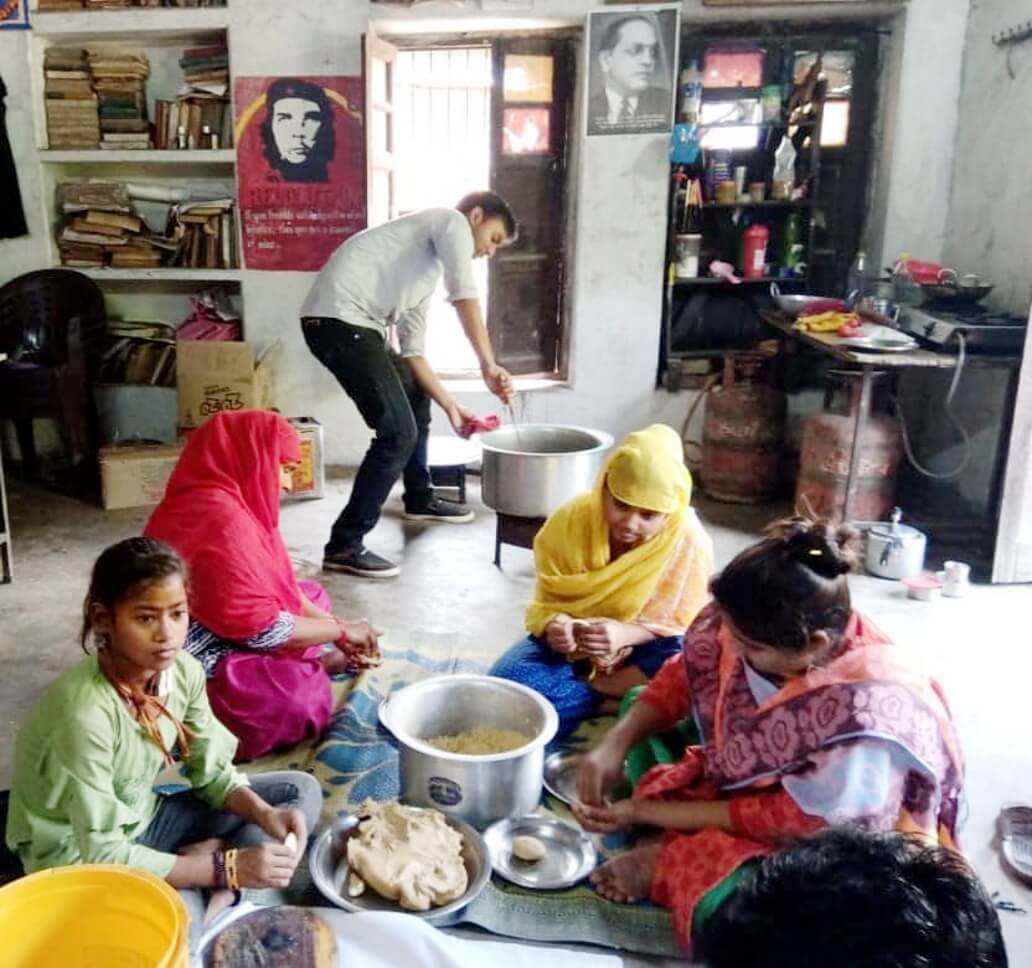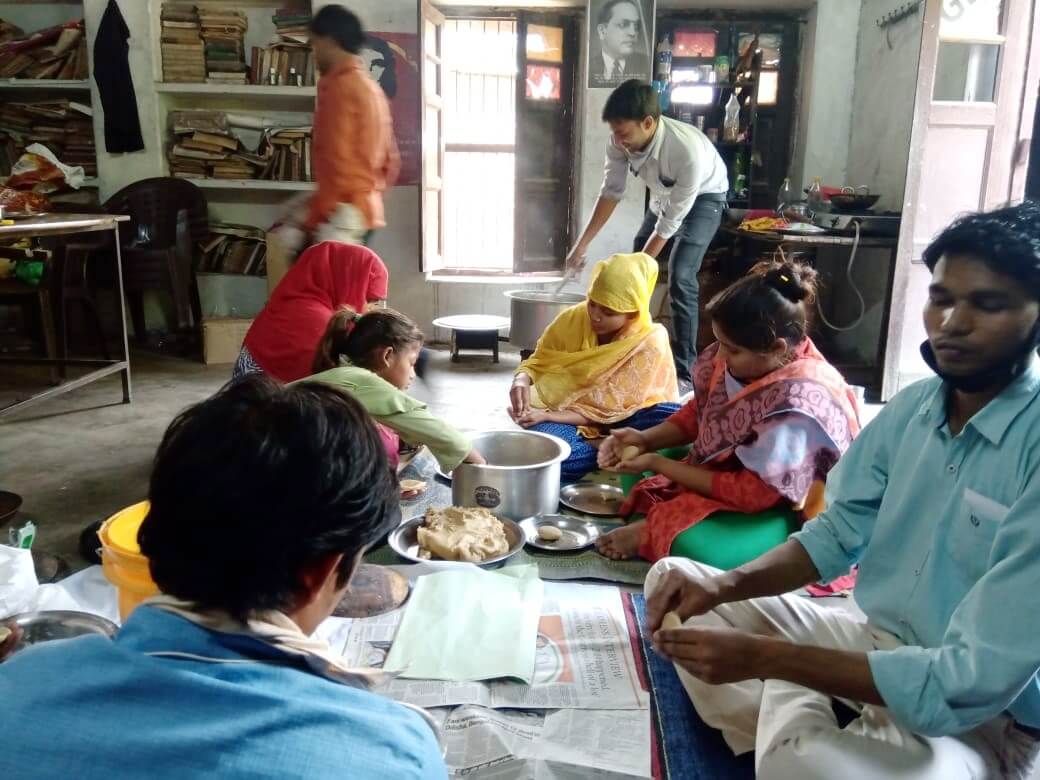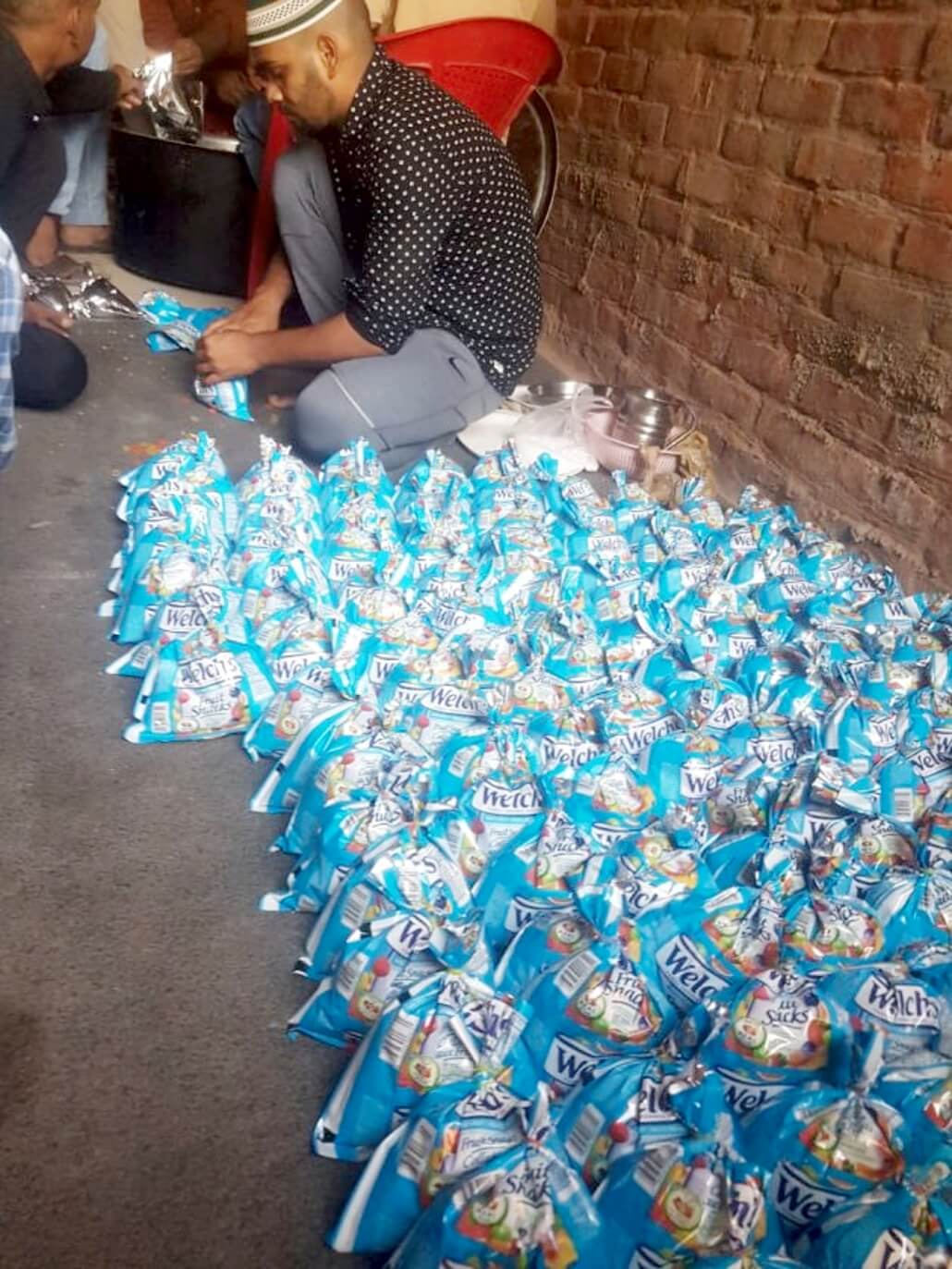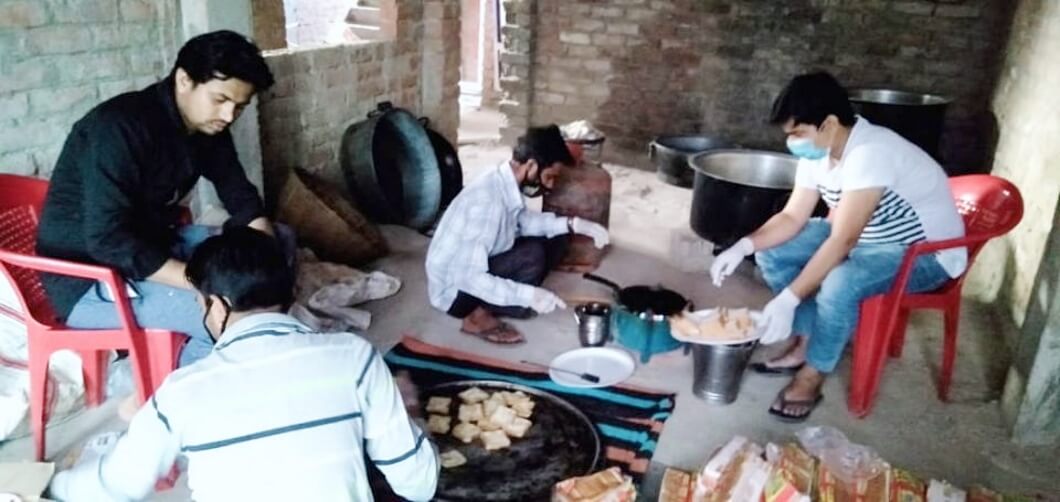Relief Work During Lockdown: Experiences of Running Mohalla Kitchens in Varanasi

THE Lockdown against Coronavirus has forced urban and daily workers to face the challenge of survival. Staying alive has become a huge challenge for daily wage earners as work and the means of livelihood have vanished. In this situation, food packets were arranged by voluntary organizations as well as governments. Rations and cooked food were distributed to the needy. We also thought, why not start a Mohalla kitchen to help the needy in this hour of crisis? The needy persons could cook together in the Mohalla kitchen and distribute the food. This has been successfully implemented in the state of Kerala during the current pandemic.
The concept of Mohalla kitchens is being run at 4 places in Varanasi. How did it come into existence and how is it being run?
When the government announced an unplanned and unprepared Lockdown on 22 March, starvation reared its ugly head across the country including Varanasi. Several voluntary organizations in the city took the responsibility of providing relief. The CPIML along with activists’ groups started distributing Ration Kits to the needy (5 kg rice, 5 kg atta, vegetables, salt, oil and soap). 551 families have been given relief in the form of rations till the writing of this report. Meanwhile, the District Collector declared a monopoly on relief operations and said that rations could not be distributed to the poor without permission from the administration. In these conditions, the Mohalla kitchen came into existence, evincing a new Left unity along with CPIML and all other progressive organizations. This unity has been established in the form of the Relief Work Committee.

Mohalla kitchens are being run at 4 places in Banaras: Kanshiram Awaas Yojana; Pakki Bazaar; Lahartara-Pasiyana Gali; and Chandpur Patthar Kataan. Each place is being monitored by two persons. 10 persons from each Mohalla (including men as well as women) are responsible for running the kitchen and decide things like what food will be prepared, how much will be prepared and how much raw material will be used. Obviously, this experiment of community kitchens is being done only in extremely poor and backward Mohallas. The Relief Committee makes arrangements for the rations and the work is done by the community.
About the quality of food, Relief Committee members BHU students Shashank and Shashikant say that Food Department guidelines are being strictly observed to prevent infection. Masks and sanitizers are used by the teams engaged in cooking.
The Kanshiram Awaas Yojana kitchen is coming up as the most successful of the kitchens. Karim Ji who contributes his labor on a daily basis in the cooking says that the Mohalla kitchen is proving far more useful than dry rations supplied as part of the relief work. We feel a collective empathy through this effort and experience the positive joys of creativity even during the monotony of the Lockdown. He says that they prepare food for 700-800 people in a period of 4 to 5 hours. After that, the food is packed and the Mohalla people do the work of house-to-house distribution.

The Kanshiram Awaas Yojana (Shivpur, Banaras) started by former Chief Minister Mayawati is the biggest such project in the State and has a population of 13,000-15,000. We asked them: has Mayawati Ji organized any relief campaign in this hour of dire food crisis? They answered that Behan Ji during her tenure as CM made houses for the poor under this project, but the houses are now becoming dilapidated and the government shies away from any repair work here. They say that no political party has come forward to offer any relief during this pandemic and Corona curfew, though the government did do a one-time distribution of rations to some people. In these conditions, the community kitchen goes a long way in resolving the hunger crisis, they said.
Many Muslim youths have also contributed their labor to the running of the Mohalla kitchens. For example, Raja, who owns a hotel in Kachahari. His hotel is shut due to the Lockdown. When he got the news of this Mohalla kitchen, he made up his mind to become part of this effort. He taught everyone the art of cooking tasty biriyani, also cooked it himself, and it is now getting distributed in the Mohalla on a regular basis.
23-year old Shahjadi is an active woman member of the relief work being done in Banaras since about one month. What do women think of this Mohalla kitchen experiment? Shahjadi tells us that the women are happy that men from the Mohhalla are also engaged happily and actively in the work of cooking. They are hoping that the men who earlier used to shy away from household work would learn something and would be helpful in domestic duties in the future.

The Mohalla kitchens being run in Banaras with the people’s resources for the people are proving to be a successful experiment during this pandemic, but what will be their future? CPIML CC member Manish Sharma who runs the Relief Committee says that community kitchens have been an important feature of socialist societies. Today, when the concept of the welfare state is looking to be a failure and governments are proving incapable of feeding the people during a crisis, the people themselves are creating new alternatives. The Mohhalla kitchen, an experiment in community meals, is emerging as a new and viable alternative.
The organizations which are part of the Relief Committee are: CPIML, AISA, AIPWA, BCM, AIASF, and AICCTU.
- Kusum Verma
Charu Bhawan, U-90, Shakarpur, Delhi 110092
Phone: +91-11-42785864 | +91 9717274961 E-mail: info@cpiml.org

